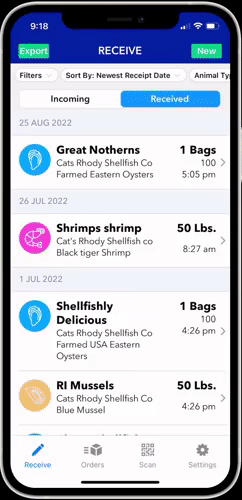Recalls happen--fortunately not very frequently--but they are a fact of life in any food industry. Most recalls are precautionary. In other words, there are no confirmed illnesses.
confirmed illnesses.
Recalls don't have to be scary
Recalls happen--fortunately not very frequently--but they are a fact of life in any food ...
Virginia Oyster Recall
Below are the details of a recall published on August 11, 2023--for oyster harvested in ...
Anatomy of an Oyster Recall
Oysters are a safe food, and very few people get sick from eating them. When something ...
